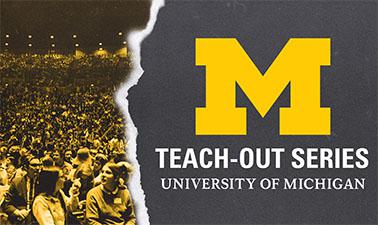Anyone Can Be a Great Communicator
In this excerpt from the Stand Up for Science Teach-Out , Professor Brian Zikmund-Fisher details how anyone can become skilled at communication, and how that can shape relationships and communities
Excerpt From

Transcript
Some people think that good communication requires innate talent. But you know what? I don't buy it. Communication is a skill. Anyone can be a great communicator with training and practice. The best communicators spend time developing, practicing and incorporating feedback into their communication efforts. If you've learned the skill of how to do science, you can learn how to communicate it too. Even if you're not a scientist, you can learn to understand the process of science, as well as individual science studies and findings. Another thing. At its core, good science communication is intentional. We don't just find data and make it available. That's access to information. We wanna communicate, which means contextualizing, explaining and engaging in conversation about the information. The instructors of this course start from the fundamental belief that good science communication is an active process. It involves understanding who we're talking with, listening to their needs, and identifying why the topic matters, why the audience should care. There's a fundamental truth here. Good science communication is measured by what people know, and think, and do, when it's done, not by what was included in it. What that means is that having more information is not always better if it doesn't help people understand. You can be a great science communicator and a great science audience if you're willing to work at it.